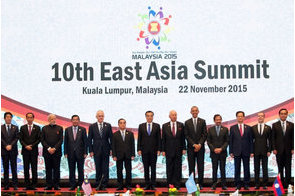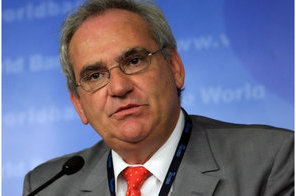Malaria To Zero: Access Bank's paradigm for anti-malaria

Summary
Strategies for eradicating malaria in Nigeria must focus on removing malaria parasites entirely from the population.
The Access Bank-led "Malaria To Zero" campaign is a bold approach that is designed to accelerate progress in the Nigerian government's malaria elimination agenda and also accomplish a key target of the United Nations 2030 Agenda for Sustainable Development. The goal of the campaign is to save one million Nigerian lives by 2020 by leveraging private sector resources and capabilities in the fight against malaria.
The malaria elimination programme being promoted by Access Bank is part of the bank's commitment to lead global best practices in sustainable finance in Nigeria. Successful malaria elimination programmes around the world have been predicated on collaboration among development partners and the private sector. The programmes also transcend prevention and control, to actual elimination of malaria parasites from human populations.
Malaria To Zero aligns with the global goal to "End Malaria for Good", which was the theme of this year's World Malaria Day (WMD). The World Health Assembly, the decision-making organ of the World Health Organisation (WHO), designated April 25th of every year to commemorate the annual WMD with the aim to create awareness and mobilise support for the global malaria elimination agenda.
At an event to mark the WMD 2016, Access Bank – along with the Private Sector Health Alliance of Nigeria (PHN), the implementing partner for Malaria To Zero – unveiled the strategies for the campaign, which has attracted a coalition of stakeholders from across the financial services, oil and gas, telecommunication, Fast Moving Consumer Goods (FMCG) and the pharmaceuticals sectors. It also has the support of Corporate Alliance on Malaria in Africa (CAMA), a GBCHealth-led initiative aimed at promoting private sector cooperation to reduce the incidence of malaria in Sub-Saharan Africa. GBCHealth is a coalition of companies and non-profit organisations committed to promoting the highest-priority global health goals.
New Approach
The strong support for Malaria To Zero is an indication that eradicating malaria from within the borders of Nigeria in the foreseeable future is not improbable. However, there has to be a radically new approach to addressing the malaria-epidemic in Nigeria, since several malaria interventions over the past decade and a half have had limited impact.
Out of the close to 100 countries where malaria still occurs, Nigeria accounts for a disproportionately high number of the global malaria burden. According to the National Malaria Strategic Plan (2014-2020), malaria is responsible for 60 per cent of outpatient visits to health facilities, 25 per cent of deaths in children under one year, and 11 per cent of maternal mortalities. These statistics show that Nigeria accounts for one-quarter of malaria cases in sub-Saharan Africa – a region where 88 per cent of all global malaria cases occur and 90 per cent of malaria-related deaths are recorded.
The disease imposes staggering social and economic costs. Employee absenteeism due to malaria undercuts productivity, while school absenteeism lowers education outcomes. Some estimates put Africa's annual productivity losses – as a result of the prevalence of malaria – at $12 billion.
Unlike other countries of the world such as the United States where malaria was eliminated in 1951 or Western Europe, which has been malaria-free since the first half of the 20th century, malaria has remained a significant health challenge in Nigeria because of a number of socio-economic and environmental factors, including inadequate funding, lack of coordination in interventional efforts, lack of research on growing resistant strains of the malaria parasite, poor sanitary conditions that are effective breeding grounds for mosquitoes, and high cost of malaria treatments.
Nigeria's revised National Malaria Strategic Plan (2014-2020) is a major departure from previous malaria interventions by the government. The new plan, which was launched last year, emphasizes a transition from albeit effective management procedures and malaria prevention methods to malaria elimination. The NMSP (2014-2020) is estimated to cost $4.1 billion over the period of its implementation. However, the anti-malaria programme would not achieve its goals without coordination and private sector support.
Leveraging PHN's network of the Nigerian corporate community and the private health sector to implement Malaria To Zero is expected to have significant impact and also achieve the Alliance's goal of improving healthcare outcomes. For one, Access Bank's leadership in the initiative is pooling private sector resources to achieve Nigeria's malaria elimination goal. Other benefits of the strong malaria partnership entails building effective communication strategies and improving access to drugs, diagnostics and other malaria elimination products.
Multiple Intervention Strategies
Eliminating malaria requires a combination of interventions. Malaria parasites can live in human bodies for more than 10 years. This calls for continuous diagnostic testing for even individuals that do not show the common symptoms of the disease such as high-fever, vomiting, profuse sweating, headache, nausea, and other symptoms. Strategies for eradicating malaria in Nigeria must focus on removing malaria parasites entirely from the population.
Rapid Diagnostic Test kits (RDTs), used to detect the evidence of malaria in humans as well as microscopy, a scientifically-enhanced means of detecting malaria parasite in human blood, are strategies that are emphasised by the Malaria To Zero campaign.
But this strategy cannot be effective without an epidemiological profile of the country. An effective malaria prevention and elimination programme requires the strategic use of data. Previous intervention strategies have been limited in positive outcomes due to inadequate information. The Malaria To Zero programme will create an innovative malaria data and surveillance system to catalogue malaria cases and deaths. Part of the objective of the malaria surveillance framework is to evaluate and improve the effectiveness of the interventions being carried out in communities.
Seasonal Malaria Chemoprophylaxis (SMC) has also been identified as a high-impact intervention. SMC is a preventive treatment administered during periods of high malarial risk, such as the rainy season when malaria transmission rate increases. Some insecticides can be applied on the walls and other surfaces in homes to kill malaria vectors or mosquitoes that come in contact with the surfaces. This process, widely known as Indoor Residual Spraying (IRS), is also considered one of the highly-effective control measures. Another infection-control practice involves improving sanitary conditions through the Larval Source Management (LSM) strategy, by eliminating potential malaria vector breeding sites.
The wide stakeholding of Malaria To Zero is strategic for achieving the goals of the initiative. For instance, pharmaceutical companies can help in product subsidies to improve affordability for low-income individuals. The distribution of drugs and other interventional materials – such as Long-Lasting Insecticide Nets (LLINs) – that need to be deployed to end-users can be effectively carried out using the supply chain management expertise of the FMCGs. The awareness, publicity and performance management of the campaign will be provided with the partnership of media and telecommunications companies that have joined the campaign.
The Malaria To Zero campaign requires the sustained commitment of all the stakeholders to achieve its target of saving one million lives by 2020 and ultimately remove Nigeria from its undesirable position on the global malaria landscape.
Human Development Index
One of the targets of 'Goal 3' of the Sustainable Development Goals pertains to ending the epidemics of AIDS, tuberculosis, malaria and neglected tropical diseases, by 2030. The WHO says the prevalence of deadly diseases perpetuates poverty and undermines human development. Little wonder sub-Saharan Africa, the world's poorest region, has a high prevalence of malaria, one of the world's deadliest diseases.
But just as polio was successfully eradicated in Nigeria in 2015, Nigeria can be malaria-free and achieve significant progress in human development and life expectancy through public health intervention strategies such as the revised NMSP and Malaria To Zero. Although Nigeria's life expectancy increased from 47 years in 1990 to 53 years in 2014, it still remains below the sub-Saharan Africa average of 60.
Martins Hile is Executive Editor of Financial Nigeria magazine, a monthly.
Related
-
Asia Pacific roadmap to eliminate Malaria by 2030
There is now a consensus between malaria experts that the battle against the deadly disease must focus on elimination ...
-
Coalition writes Buhari on investment in healthcare
The group said healthcare is the foundation of national security, economic growth and recovery plan.
-
IFC invests $30 million in Ascendis Health to improve access to pharmaceuticals
IFC’s investments are aimed at promoting greater access to high-quality healthcare in developmeing countries.









_-_300x350-202501141442143232.jpg)
